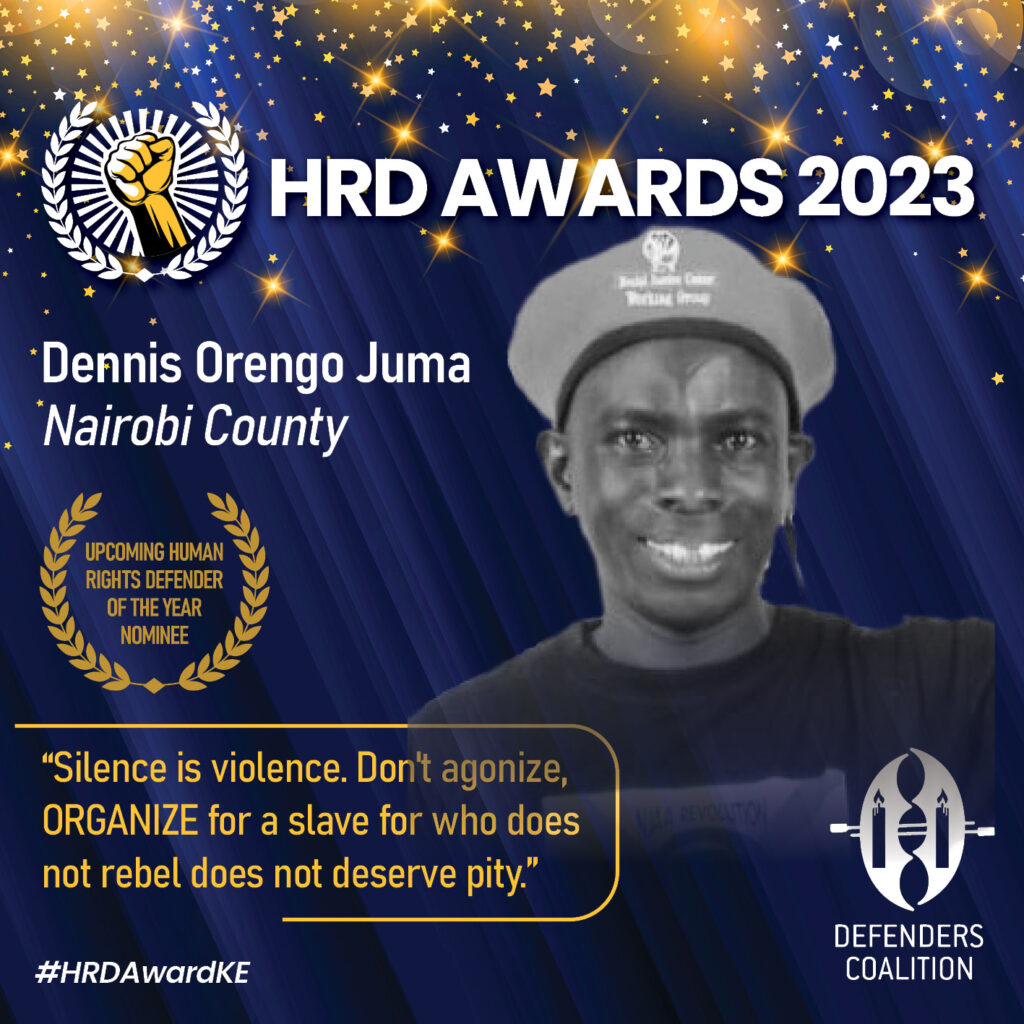
Dennis is a human rights defender working with a range of marginalized and vulnerable groups of the society. These include widows, Children, Refugees, Persons with Disabilities(PWDs) and victims of extrajudicial killings.
Specifically, Dennis volunteers to do sign language interpretation in police stations and in courts of law whenever deaf persons are in conflict with the law or have been violated so as to ensure mitigation of language barrier in the dispensation and access to justice.
Besides supporting PWDs, Dennis supports widows facing various challenges accessing justice access alternatives such as the alternative justice system. Additionally, Dennis trains the widows on paralegal skills where they can go to court and seek justice by themselves in case they are not able to afford litigation services.
Owing to the fact that Dennis works with marginalized and vulnerable groups in the community, perpetrators of violations are always keen to intimidate and silence Dennis by issuing threats. He has had to relocate severally due to an increase of threats as a result of his work.
“For my advocacy, I have faced threats which has led to at times stalling my work because I have to operate incognito or move out of the jurisdiction area where I operate. I have been forced to change houses every quarter for my safety.”
Despite the challenges, Dennis has overcome this challenge by remaining firm, consistent and upholding integrity and abiding by the rule of law at all times. This has made perpetrators lack a basis on which to discredit his service.
Scope, reach, and impact of the work
Orengo has registered a catalog of impressive policies and direct individual support for individuals whose rights were abused.
“Under the Disability Rights Advocacy, I have helped three Deaf Children who were defiled to get justice with about 10 more cases on disabled child defilement cases pending in court. I helped in documentation, filing of the cases and sign language interpretation during the court process. I also proposed 7 amendments to the Disability Bill 2023 which were all adopted by the Senate. Between 2019 to 2022, I have helped mobilize funds to buy 50 white canes to 50 visually impaired persons. I have also helped establish a disability club at St Paul’s University where I help disabled students in application of bursaries, local and international scholarships.”
Why the HRD stands out from others working on similar issues
Because of the issues he is focused on- groups that do not have plenty of advocates, and the level of success he has notched, this award will help raise his profile and enhance his further contribution.
What positive impact will this award have on your human rights work?
Dennis believes that this recognition will help enhance his safety and security by consolidating position and role in the community. He believes that the award will send a strong message to perpetrators that his work is legitimate and that he has allies across various sections of the community. He also hopes to make use of the funds from the recognition to develop a software application that supports the monitoring of human rights violations in his community.